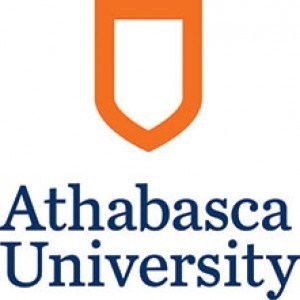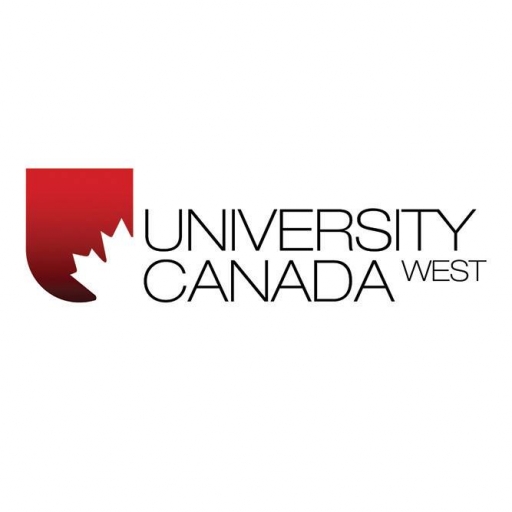Photos of university
The Labour Studies Concentration at Athabasca University offers students a comprehensive understanding of the historical, social, economic, and political aspects of labor and work in contemporary society. This program is designed for individuals interested in exploring the dynamics of employment, workplace relations, workers' rights, and social justice issues. Students will examine various topics including labor movements, unionization, workplace policies, and the impact of globalization on labor markets. Through a blend of theoretical frameworks and practical applications, the program equips learners with critical analysis skills and a deeper awareness of the challenges faced by workers and employers alike. The curriculum emphasizes the importance of social equity and advocates for constructive change within the workforce. Coursework covers key areas such as employment law, organizational behavior, conflict resolution, and the history of labor activism. The program is suitable for those seeking careers in human resources, labor relations, advocacy organizations, or public policy. Delivered online, the Labour Studies Concentration offers flexibility to accommodate working professionals and those balancing other commitments. Students gain access to a rich array of learning resources, including engaging lectures, case studies, discussions, and interactive activities. The program promotes a multidisciplinary approach, integrating perspectives from sociology, economics, political science, and history to foster a well-rounded understanding of labor issues. Graduates of this concentration will be prepared to contribute effectively to workplace development, policy advocacy, and social change initiatives. Whether aiming for career advancement or personal enrichment, students will develop the knowledge and skills necessary to analyze and influence the evolving landscape of labor relations. The Labour Studies Concentration is an excellent choice for those passionate about promoting fairness, equity, and dignity in the workplace, empowering them to make a meaningful difference in their communities and beyond.
Labour Studies Concentration at Athabasca University offers students an in-depth understanding of the social, economic, and political aspects of work and employment. This program is designed for individuals interested in exploring the dynamics of labor markets, workers' rights, organizational change, and the influence of government policies on employment practices. The curriculum emphasizes a multidisciplinary approach, integrating perspectives from sociology, economics, political science, and history to provide a comprehensive view of labour issues within both local and global contexts. Students will examine critical topics such as labour law, unionism, workplace inequality, gender and race in employment, and workplace health and safety.
Throughout the program, learners will engage with contemporary debates about the future of work, automation, fair wages, and the role of labour in socio-economic development. The coursework encourages critical thinking and practical skills, preparing students for careers in human resources, labour relations, advocacy, policy analysis, and community organizing. The program also emphasizes experiential learning where possible, including case studies, research projects, and opportunities for engagement with labour organizations and Labour unions.
Designed for working professionals and adult learners, the Labour Studies Concentration offers flexible online learning options that enable students to study at their own pace while balancing other commitments. The program combines foundational courses with specialized electives, allowing students to tailor their studies to their career interests and goals. Upon completion, graduates will possess the analytical tools and knowledge necessary to understand complex labour issues and contribute effectively to workplaces, organizations, and policy development. Whether seeking to advance in their current profession or transition into a new field related to labour and employment, students will find this program a valuable stepping stone towards achieving their career aspirations.
The Labour Studies Concentration at Athabasca University requires students to complete a set of designated courses that collectively provide a comprehensive understanding of labour issues, employment relations, and workers’ rights. Typically, students are expected to complete a minimum of 30 credit units specializing in labour studies, including core courses that introduce the fundamental theories and principles related to labour, employment law, and workforce dynamics. These core courses often encompass topics such as labour history, collective bargaining, workplace health and safety, and social justice in employment. In addition to core courses, students may choose from a range of electives that cover specialized areas such as labour economics, conflict resolution, workplace diversity, and labour policy-making. To ensure a well-rounded education, some programmes require students to undertake practical experience or a capstone project, allowing them to apply their theoretical knowledge in real-world settings. The program emphasizes critical thinking and analytical skills, urging students to evaluate current labour market trends, legal frameworks, and societal impacts of employment policies. Additionally, students are encouraged to participate in discussions on issues such as labour rights, globalization, and digital transformation of work. The curriculum is designed to be flexible, accommodating part-time students and working professionals, often through online delivery methods. While specific course names and numbers may vary, the programme’s overall structure aligns with Athabasca University’s commitment to accessible, relevant, and high-quality education in labour studies. Completion of the concentration may serve as a pathway to careers in union organizing, human resources, policy analysis, social justice advocacy, or further graduate studies in related fields. Students should consult official university resources for detailed, up-to-date programme requirements, including any prerequisites and graduation criteria.
The Labour Studies Concentration at Athabasca University offers a range of financial options to support students throughout their academic journey. Tuition fees vary depending on the number of courses taken per term and whether students are domestic or international. Typically, the tuition rate for undergraduate courses is set annually and may include additional fees for course materials or administrative costs. Athabasca University provides flexible payment plans to accommodate students’ financial situations, allowing for installment payments without additional interest fees.
Financial assistance programs are available through government grants, loans, and bursaries designed specifically for adult learners and part-time students. Students are encouraged to explore federal student loan options, which may include the Canada Student Loans Program, depending on residence and eligibility requirements. Additionally, provincial financial aid programs such as Alberta Student Aid may provide targeted support, including grants that do not require repayment. For those who demonstrate financial need, bursaries offered by Athabasca University can significantly offset tuition costs; these bursaries are typically awarded based on documented financial hardship and academic achievement.
In addition to government aid, there are several scholarship programs available to students enrolled in Labour Studies courses, especially for those pursuing specific concentrations or specializations. The university also promotes external scholarship opportunities through partnerships with labor organizations, industry associations, and educational foundations.
Work-study options may be available for students seeking part-time employment on or near campus, providing an opportunity to gain relevant experience while earning income to support their studies. While Athabasca University emphasizes online and distance education, some access to on-campus resources and services may be available at designated locations where students can engage with academic advisors to plan their finances and explore additional funding options.
Overall, the university aims to make Labour Studies education accessible by providing comprehensive financial support resources, flexible payment arrangements, and guidance on external funding sources. Students are advised to contact the university’s financial aid office early in their program planning and to review all available options thoroughly to ensure they maximize financial support throughout their studies.
Labour Studies is a specialized concentration offered within Athabasca University's broader academic framework, designed to provide students with comprehensive knowledge of the historical, social, economic, and political aspects of labour and employment issues. This program aims to equip students with critical thinking skills and practical understanding necessary for careers in union organizing, labour relations, policy development, advocacy, and other fields related to workforce development and labour rights. The curriculum often encompasses topics such as labour history, collective bargaining, labour law, workplace safety, and social justice, reflecting the multifaceted nature of labour studies and its intersections with equity and human rights issues.
Athabasca University's Labour Studies Concentration is distinctive in its flexibility, accommodating working professionals and adult learners through online delivery. This asynchronous learning environment allows students to study at their own pace, balancing educational pursuits with personal and professional commitments. The program typically comprises a series of core courses that provide foundational knowledge, along with electives that enable students to tailor their education according to their interests and career goals. These courses are delivered by experienced instructors and often include case studies, discussion forums, and research projects to enhance engagement and practical application of theoretical concepts.
Students enrolled in this concentration benefit from the university's commitment to accessible education, which is particularly important given the often geographic and socioeconomic diversity of its student body. The Labour Studies program also emphasizes critical analysis of contemporary labour issues, including the impact of globalization, technological change, and policy reforms on workers' rights and job security. Graduates from this program are well-prepared for roles in government agencies, labour unions, advocacy organizations, and private sector companies, where understanding of labour dynamics and regulatory environments is crucial.
Additionally, Athabasca University maintains strong connections with labour organizations and other stakeholders, providing students with opportunities for networking and internships. The program's flexible online format and comprehensive curriculum make it suitable for those seeking to deepen their understanding of labour issues while maintaining their current employment. Overall, the Labour Studies Concentration at Athabasca University aims to foster informed, engaged, and skilled professionals capable of contributing meaningfully to the development of equitable and sustainable labour policies and practices.



